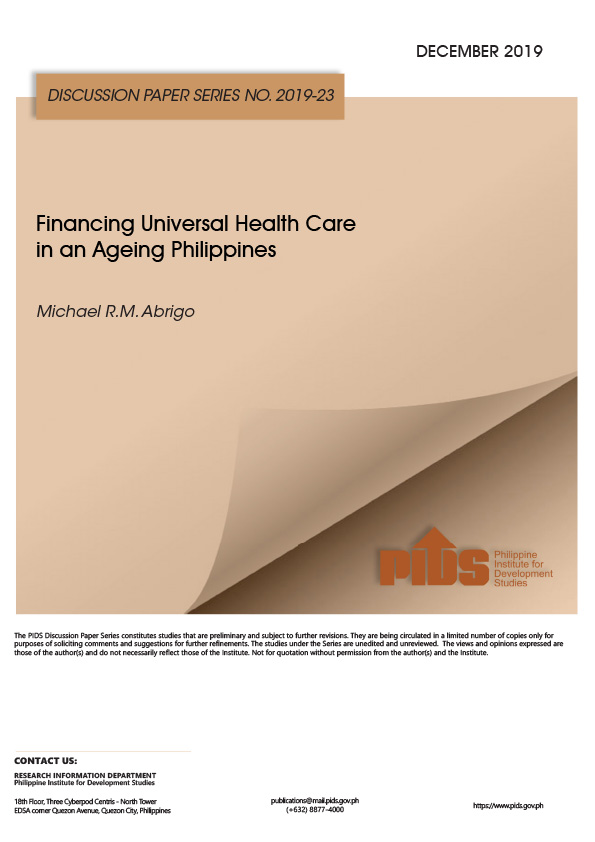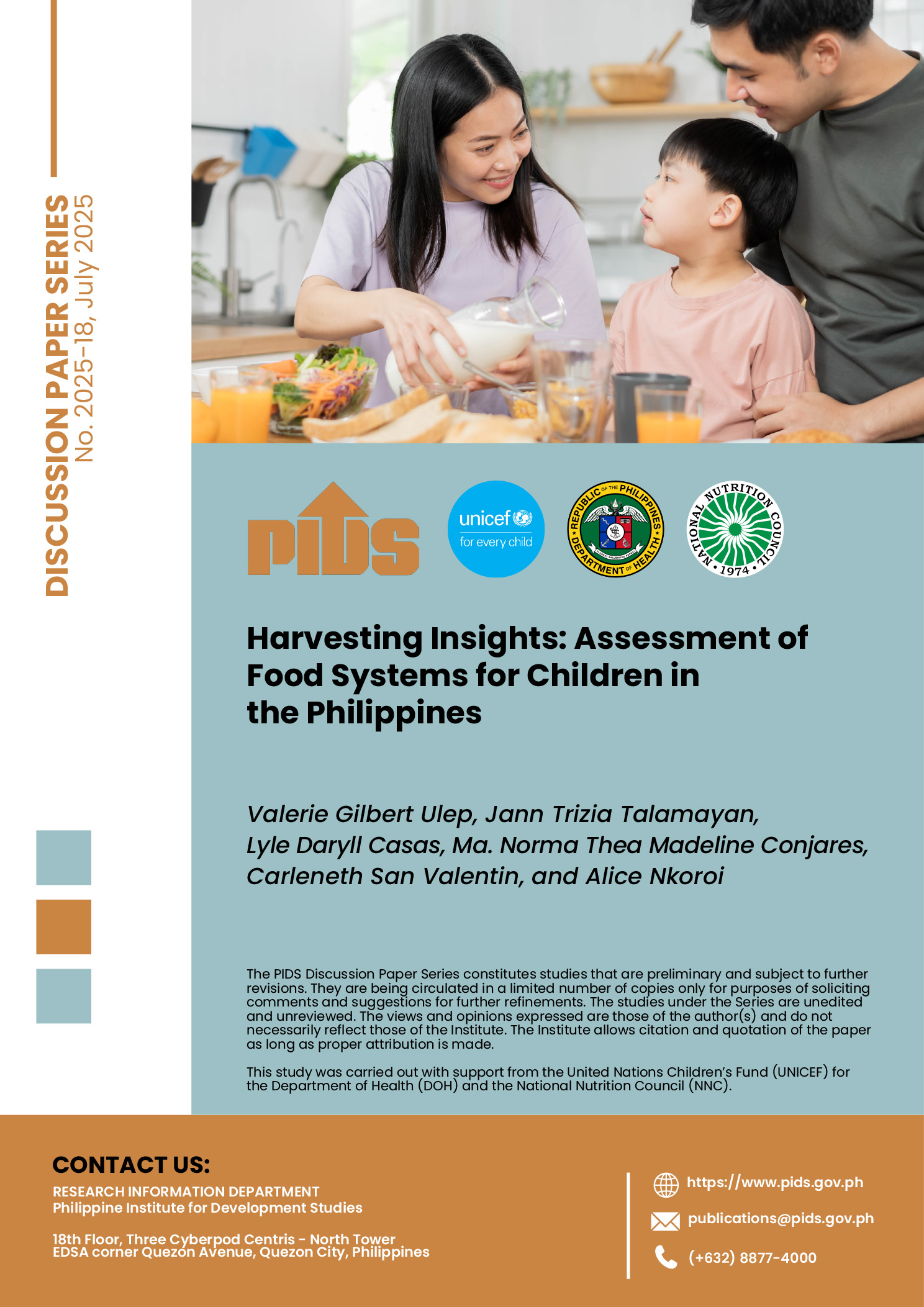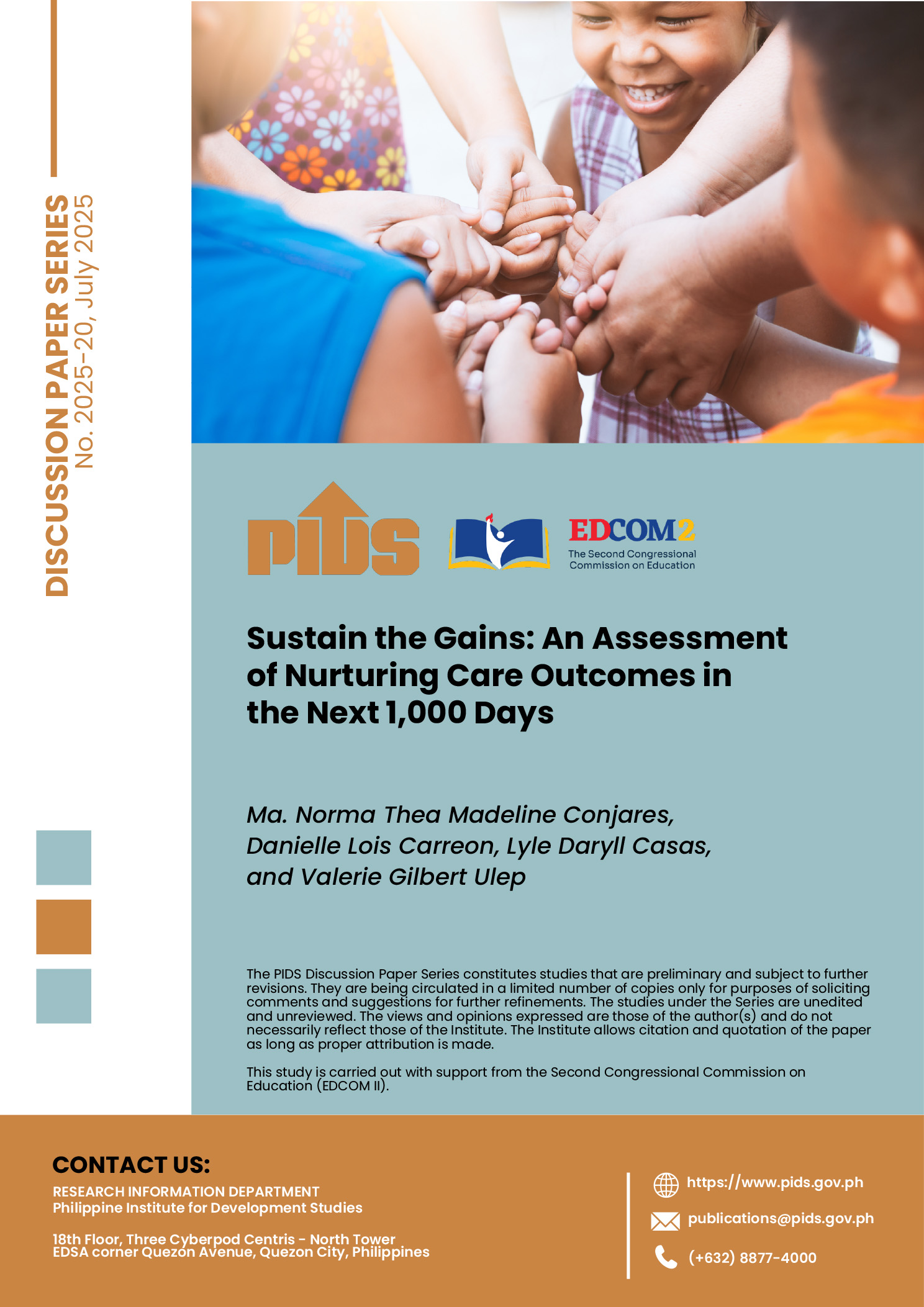The Philippines has been experiencing unprecedented economic growth in recent years. This has fueled greater consumption among households and greater support for the expansion of government entitlements, particularly on health and education. Behind these developments, however, is the fact that the country is slowly ageing. The Philippines' demographic window of opportunity is closing soon.The study shows how an ageing Philippines may impact the magnitude and direction of the resource requirement needed to finance one of the government's newest mandates, i.e., the Universal Health Care Act. As expected, population ageing will require more resources, but faster ageing does not necessarily require heavier burden among taxpayers if shared more broadly. While it may be imperative to expand human capital investments on children to fully harness the second-wave of demographic dividends, it may also be prudent to "ageing-proof" government financing to ensure the fiscal sustainability and generational equity of government services.
Citations
This publication has been cited 3 times
- Chanco, Boo. 2020. Healthcare spending. Philippine Star.
- Mindanao Daily. 2020. Growing elderly population requires more budget allocation for UHC Act. Mindanao Daily.
- Ordinario, Cai. 2019. Govt can support elderly sans new taxes–report. BusinessMirror.













